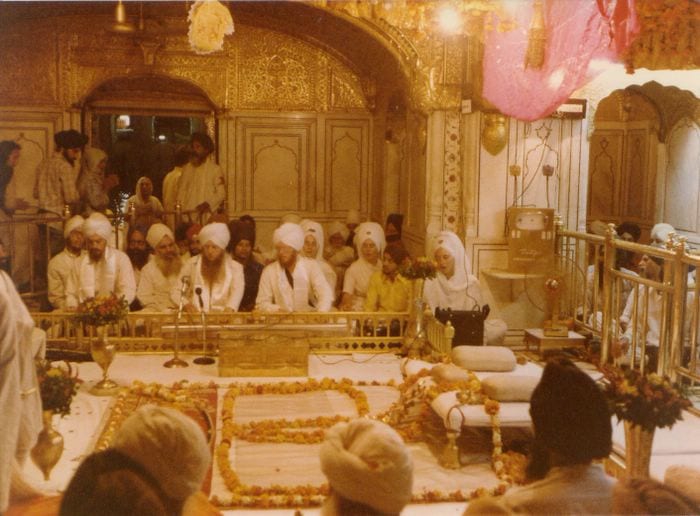|
Theme for the Week: Anyway, the pools, water and bathing – all are related to cleansing and washing. Although they help us to cleanse our bodies, they cannot cleanse our minds or souls. What do we need then to purify our inner self? This week’s collection of words and verses will help us to ponder upon some fascinating references to pools in Gurbani. This will enable us to grasp their symbolic meaning and significance and application in our daily life. ਫਰੀਦਾ ਸੋਈ ਸਰਵਰੁ ਢੂਢਿ ਲਹੁ ਜਿਥਹੁ ਲਭੀ ਵਥੁ॥ ਛਪੜਿ ਢੂਢੈ ਕਿਆ ਹੋਵੈ ਚਿਕੜਿ ਡੁਬੈ ਹਥੁ॥ ਹਰਿ ਚਰਣ ਸਰੋਵਰ (har charaṇ sarovar) |
|
Quote: |
|
Message: The Divine is referred to as a pool – the pool of divinity and goodness – the pool of truth, wisdom and virtue. The Divine is formless and without any feature or form. However, poetic personification of the Divine depicts Him as a Being, having features similar to His creation. Hence, the feet here do not represent any physical existence. They represent the sanctuary of the Divine – His love, devotion and remembrance or awareness of His omnipresence at all times. In olden times, bathing at the places of pilgrimage was considered a holy act by the majority of people. Hence, instead of merely condemning the act and refuting the false notions of outward baths, Gurbani advocates that the true place of bathing is not external. It is the state of divine consciousness and love where true divinity is found. It is the practice of purity and virtue that transforms us into better beings. Etymology: Sarovar, a modification of sarvar from Sanskrit saras (lake, pool) → Pali → Prakrit sar (lake, pond) → Gurbani sar (pool) + var (supreme, great, large). |




